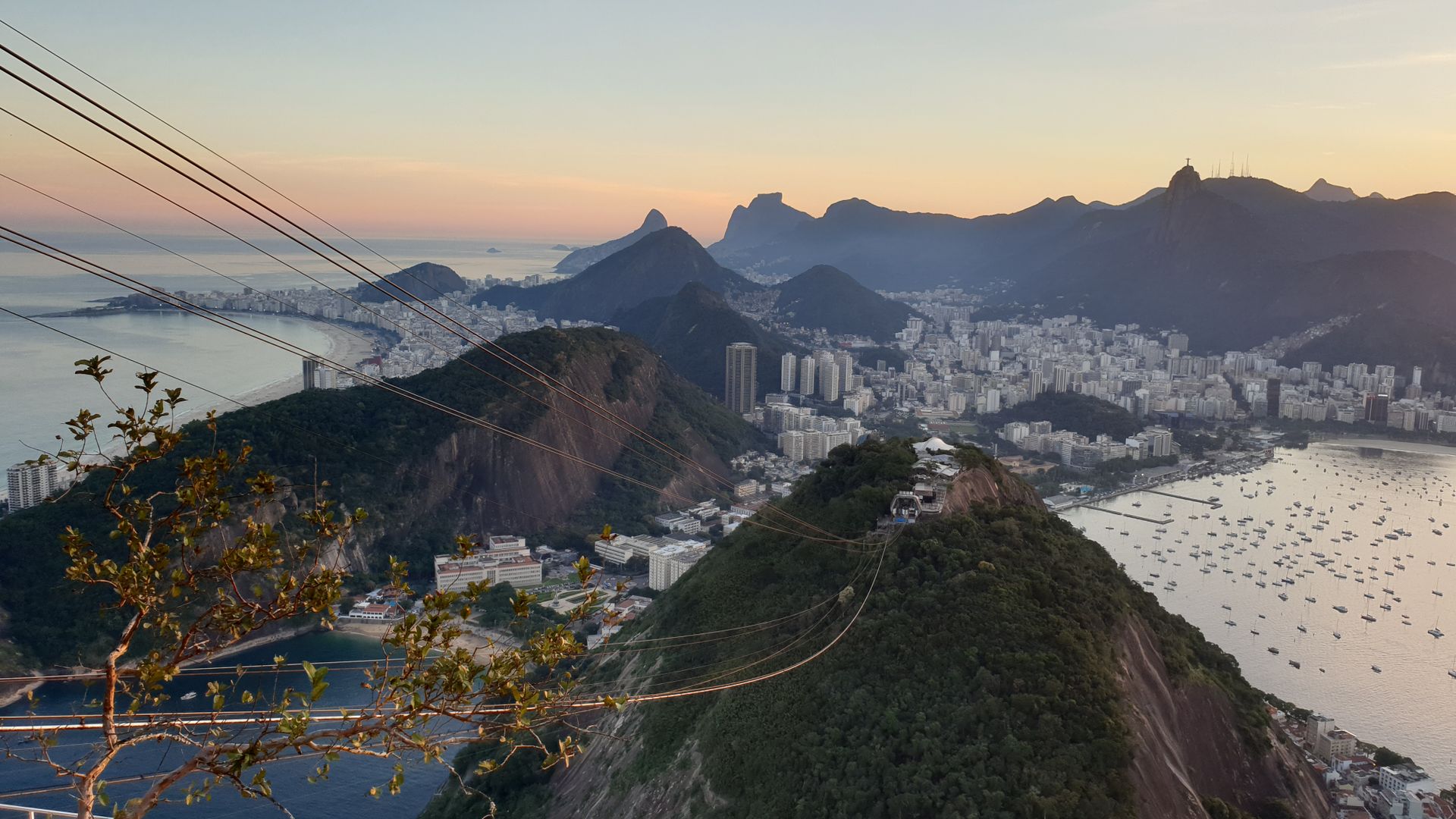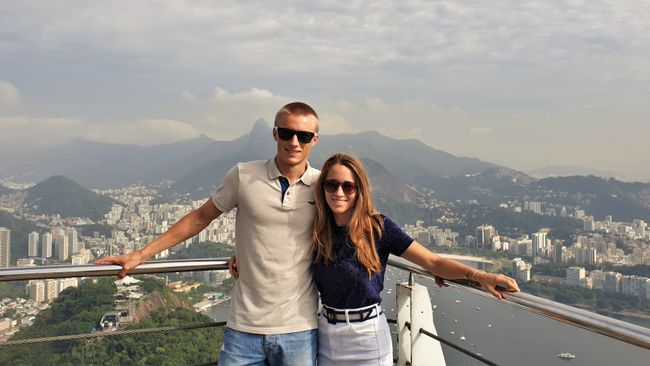Honduras #2 - Utila Cays
Udgivet: 28.06.2020
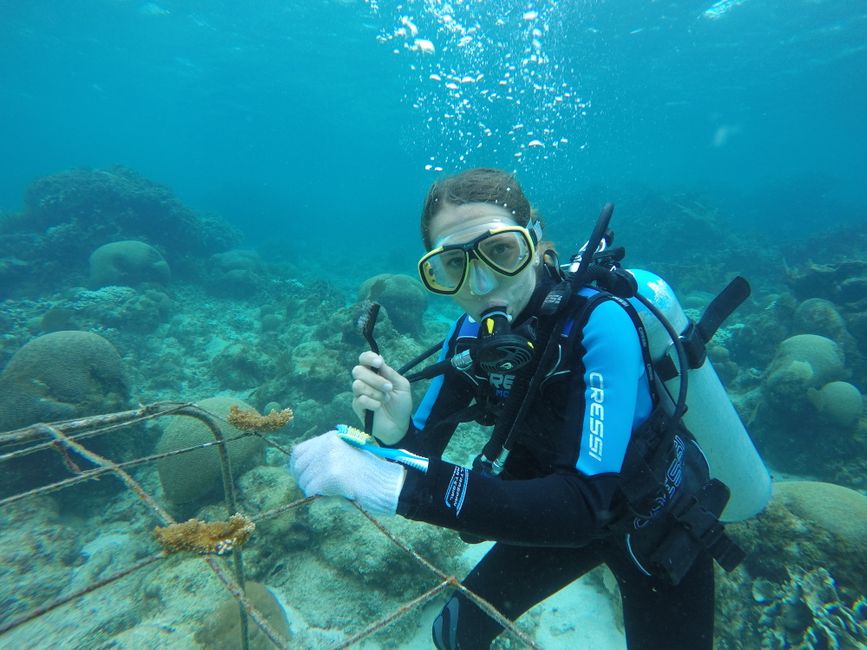
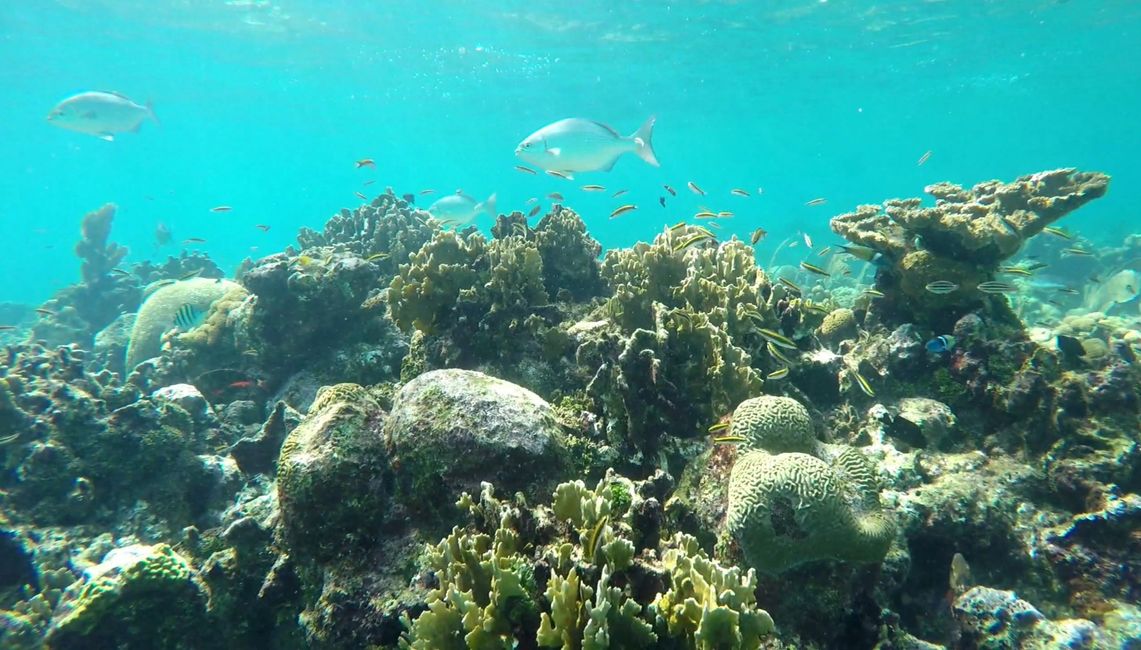
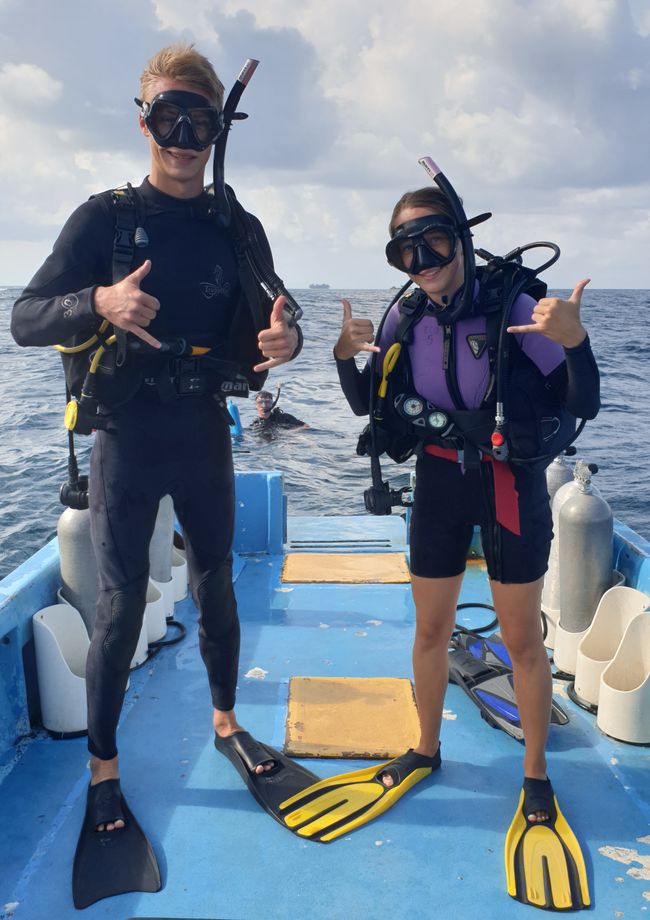
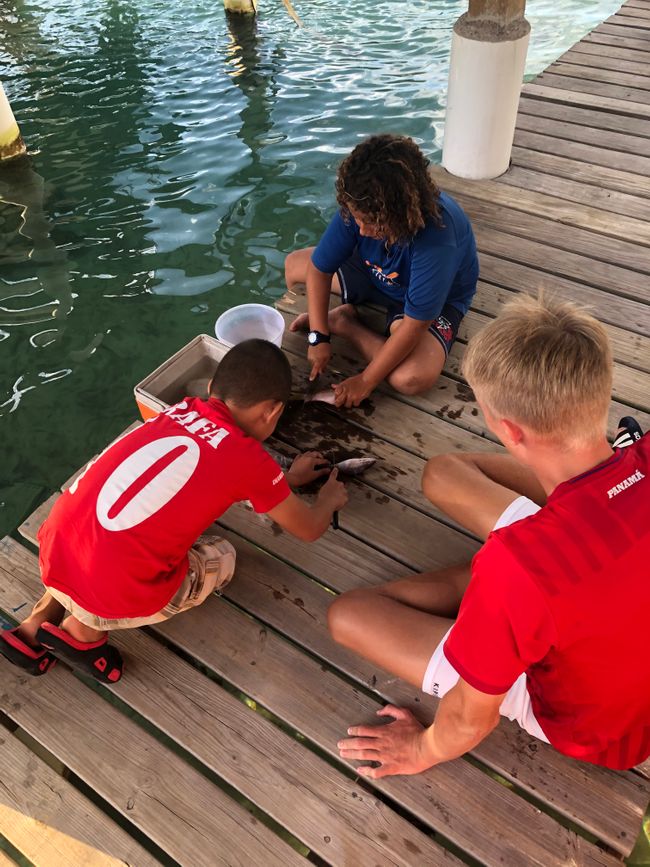
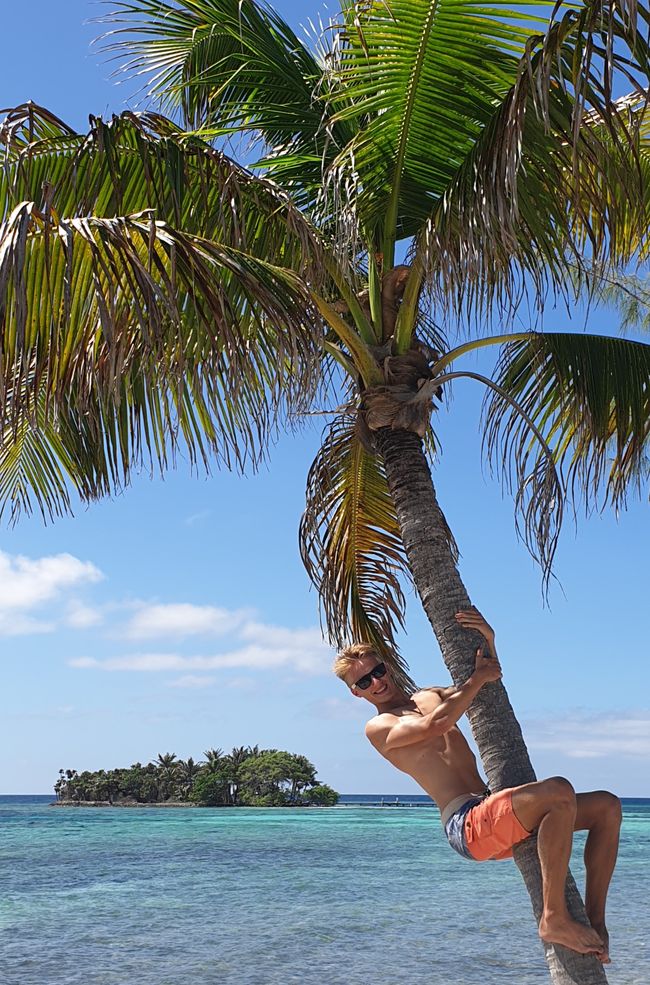
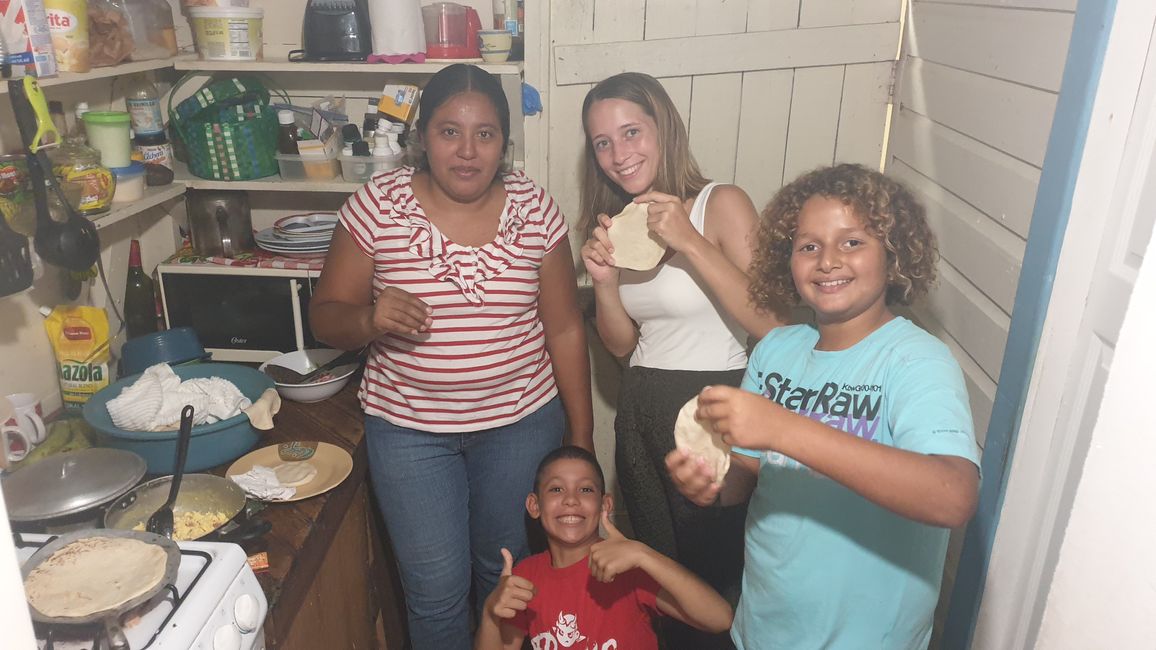
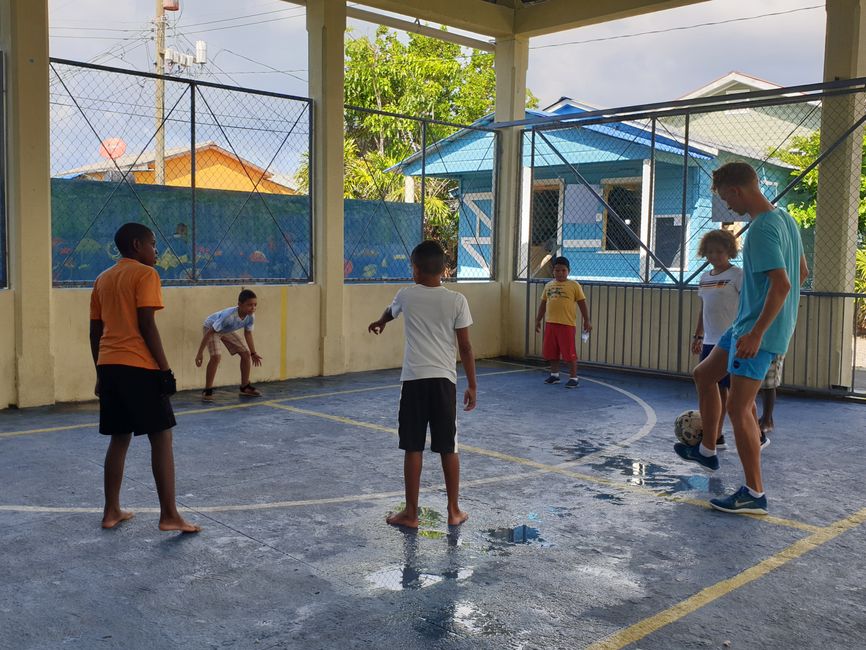
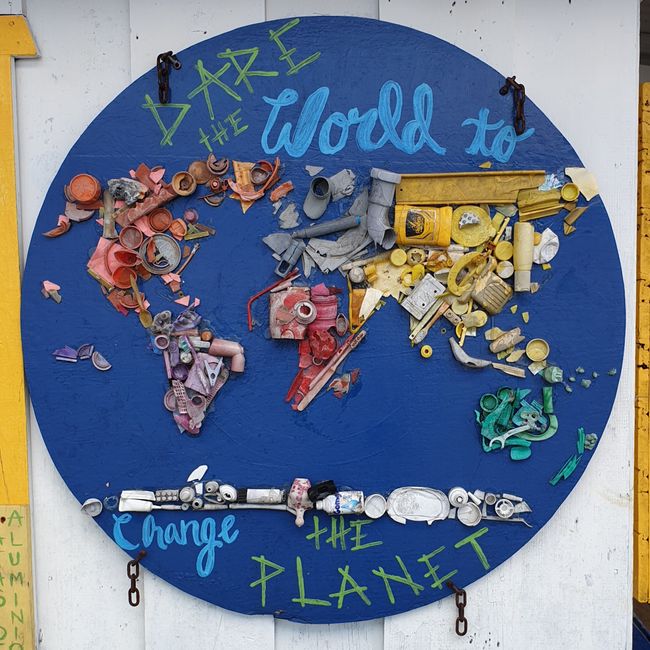
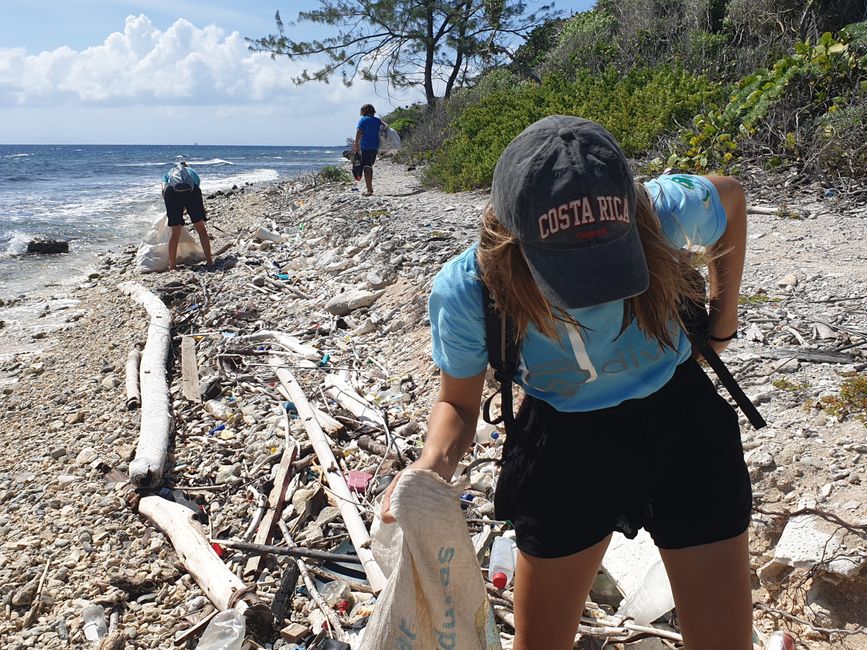
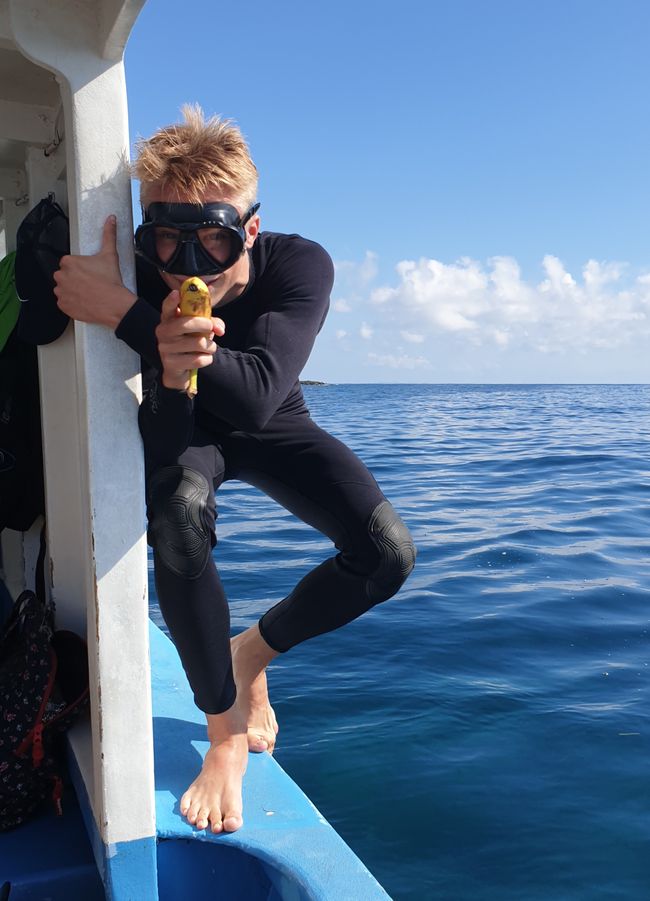
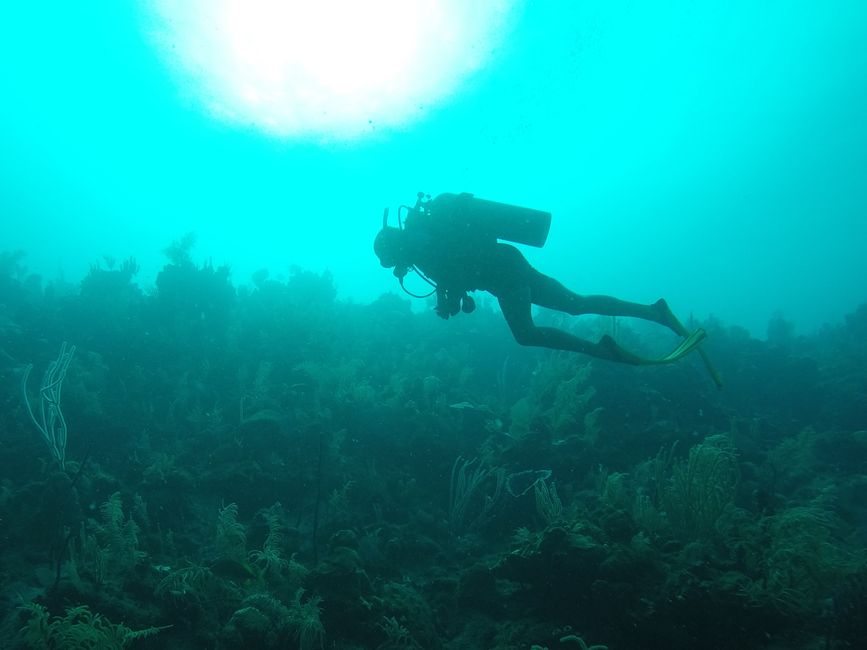
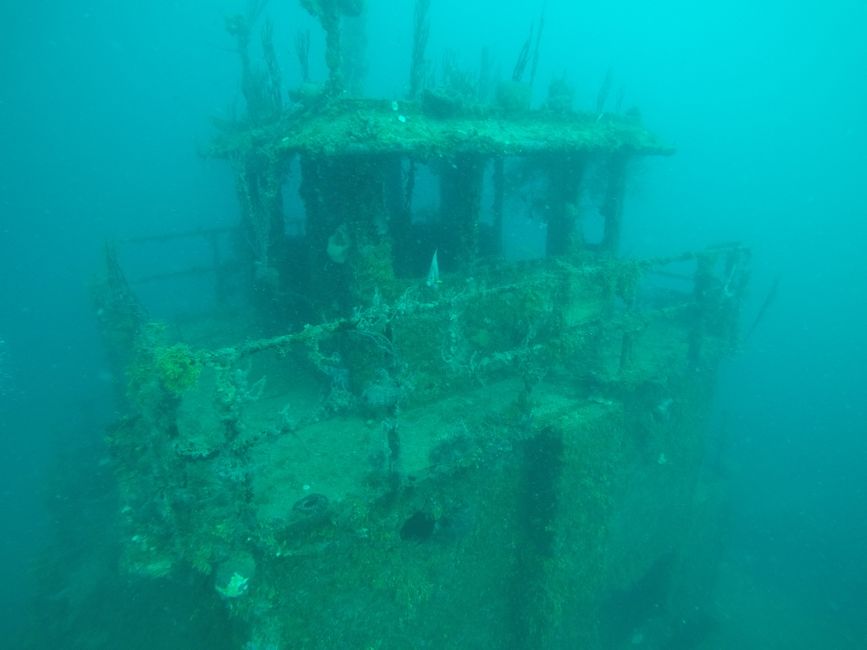
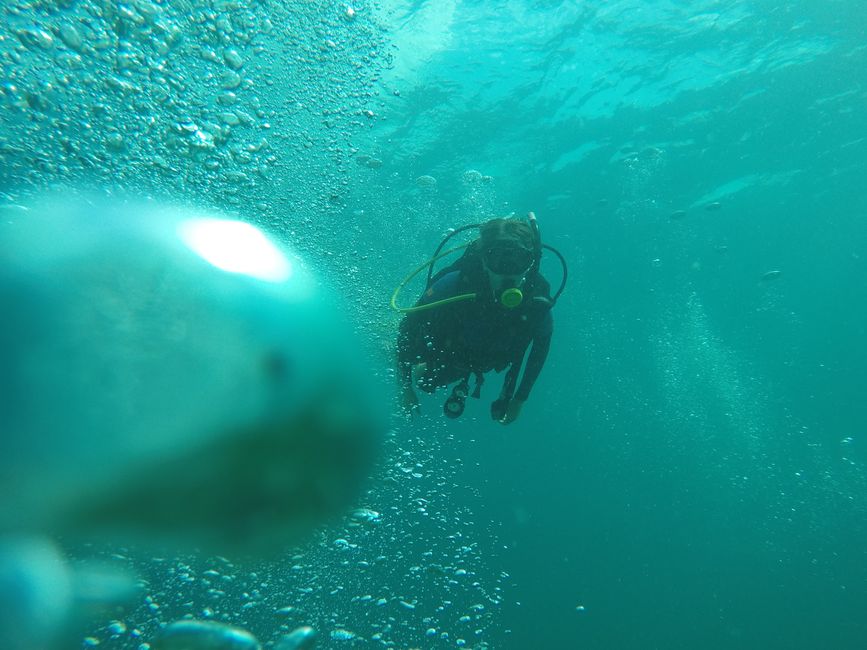
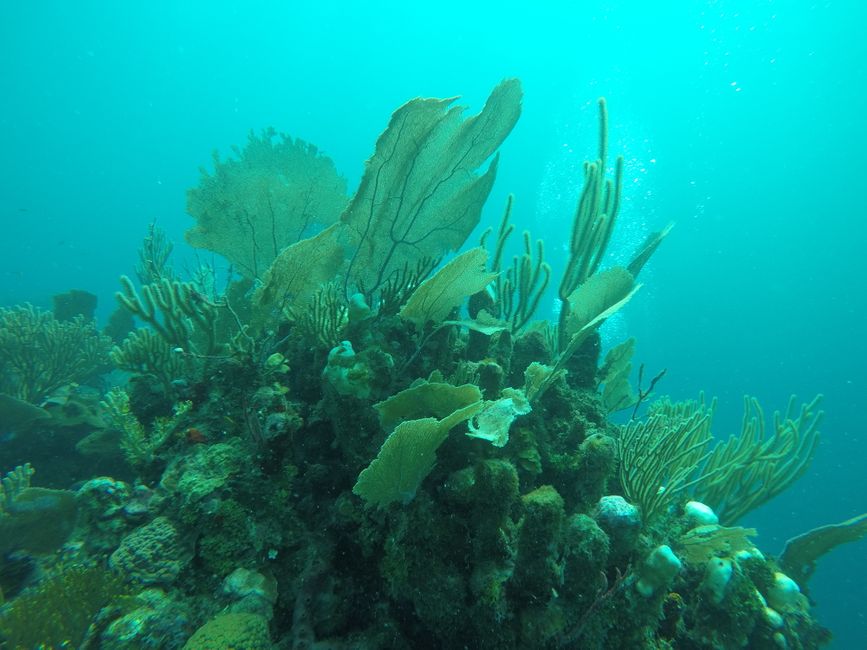
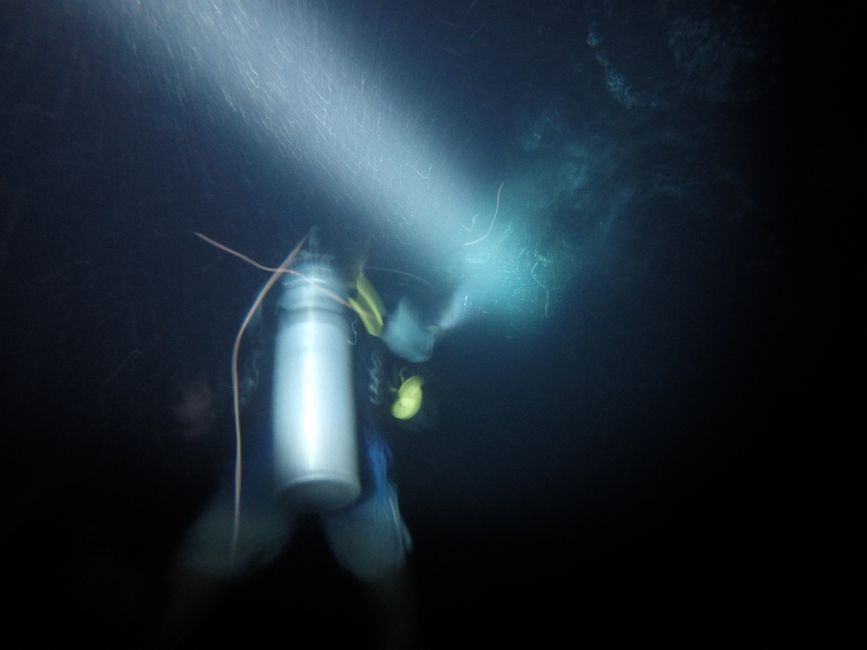
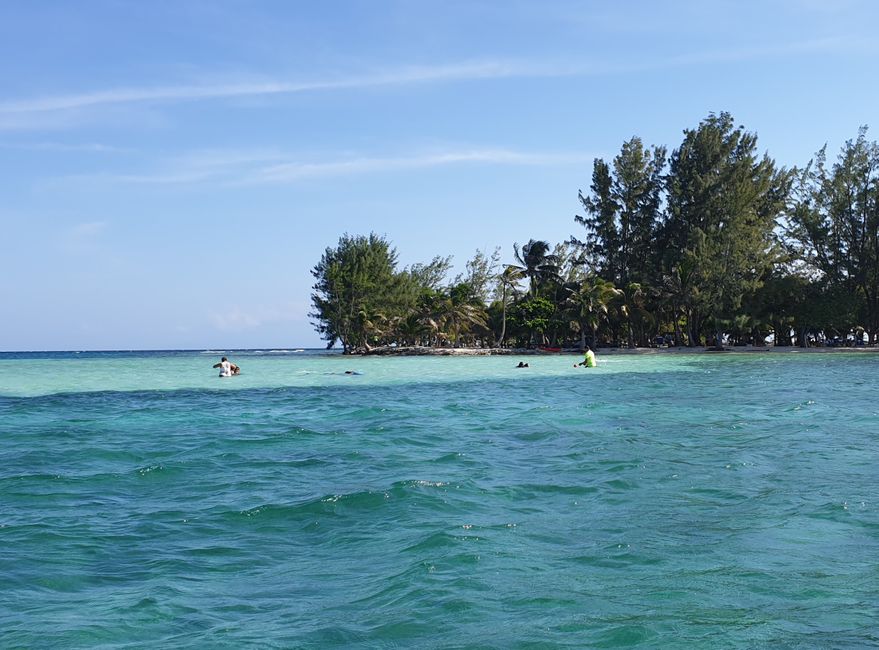
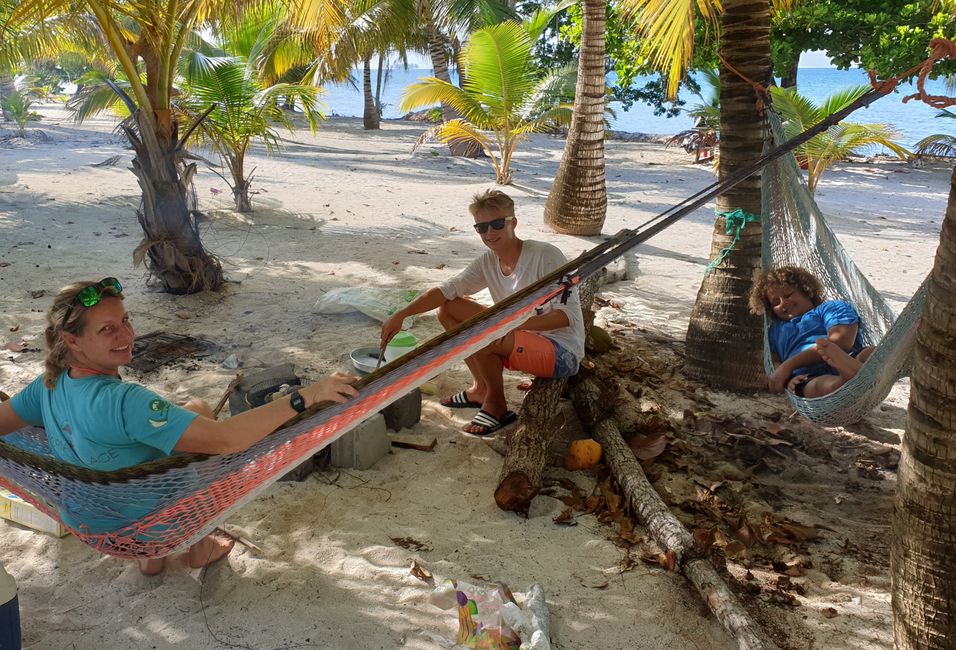
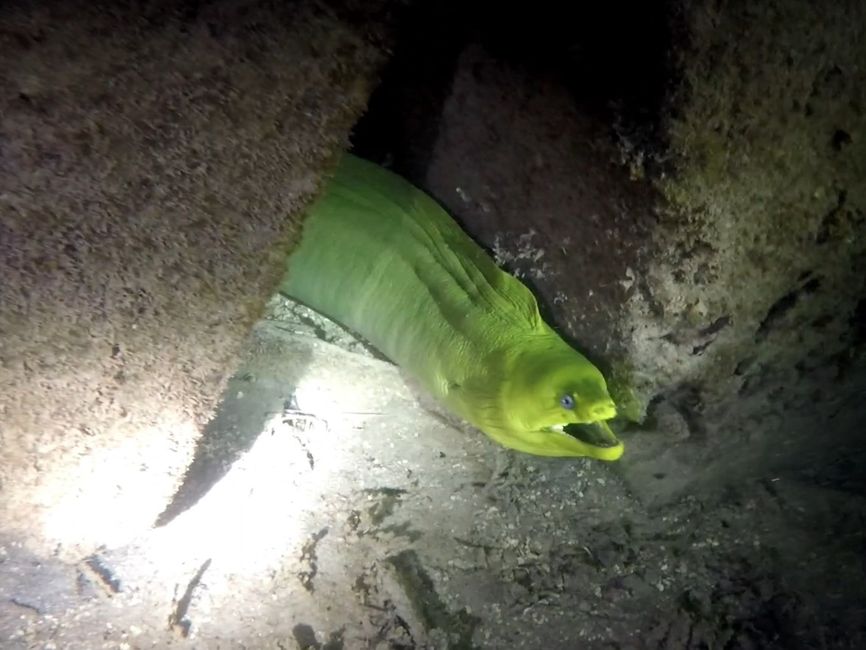
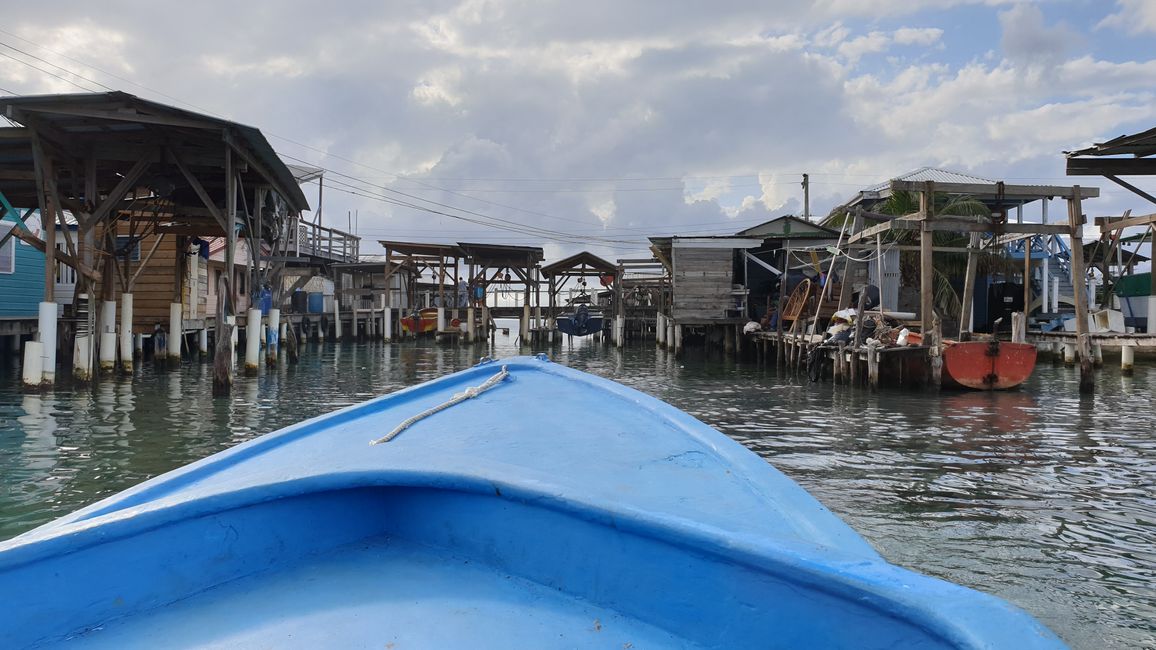
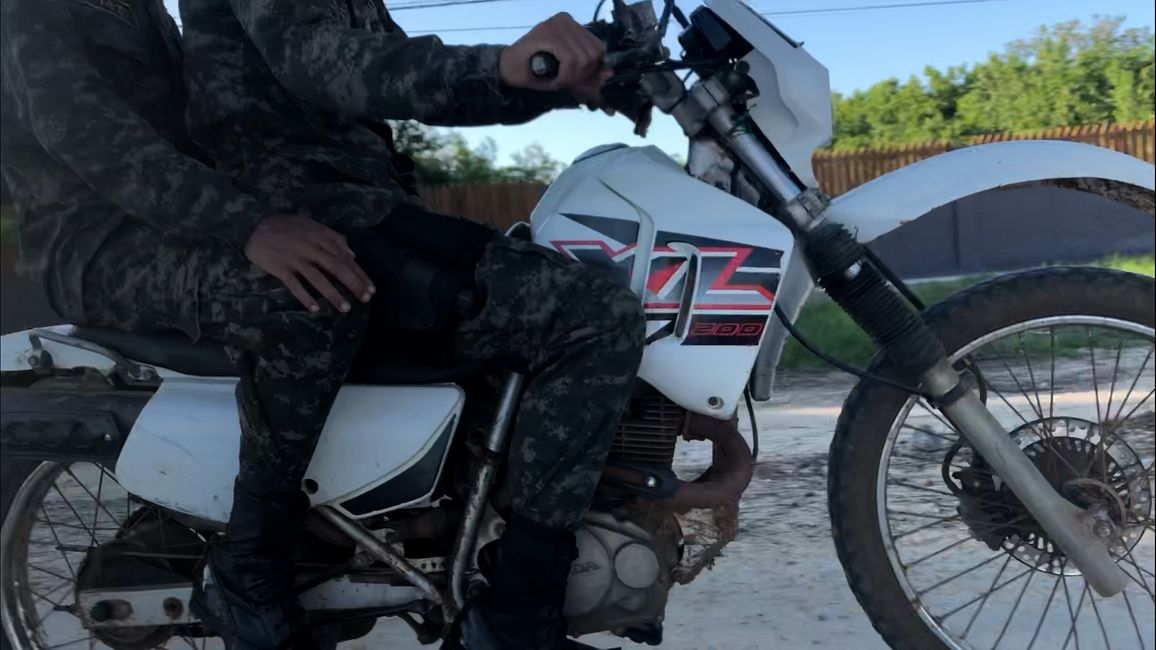
Abonner på nyhedsbrev
It's been over two weeks now since we've been living with Andres and Anke. We still enjoy the privilege of living on a tiny Caribbean island and visit the underwater world daily. But we're also increasingly getting to know the locals and their way of life.
Andres and the neighbor boy Rafa keep us on our toes. We spend our days playing games, playing soccer, snorkeling, fishing, and of course, attending daily lessons.
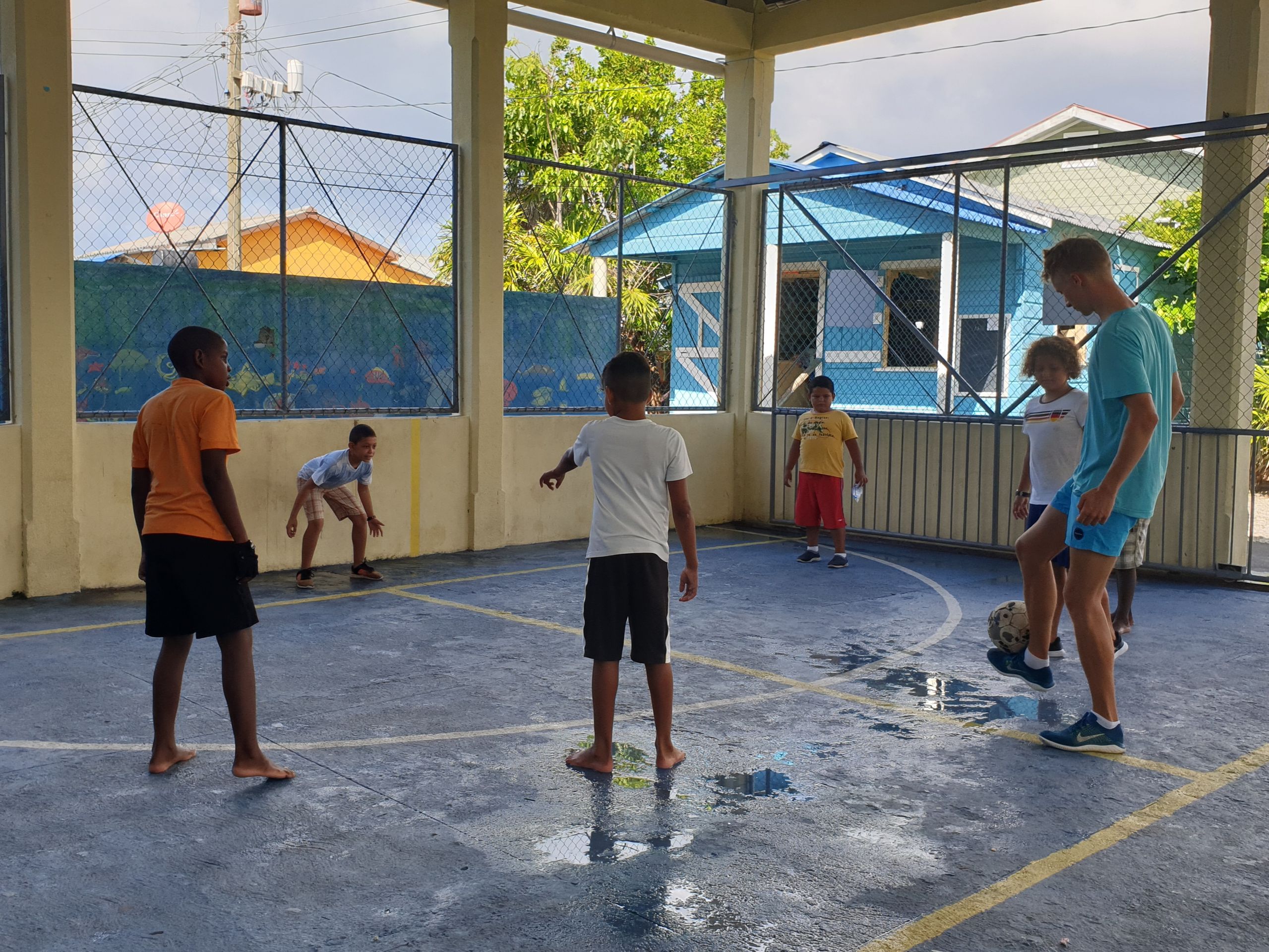

From the sea to the plate: The boys have already taught us how to use a PET bottle for fishing, catch and clean fish, and prepare them deliciously. In our neighbor's kitchen, we learned how to make Baleadas. These dough patties filled with beans, egg, cream cheese, meat, and avocado are a huge hit throughout Honduras.

As "Andres' new babysitters," we quickly became known, which is admittedly not difficult on a tiny island. Through the children and Anke's nature conservation projects, we have also made friends with the teachers, who are very interested in our journey. On Thanksgiving, we were invited to celebrate the holiday in one of the tiny churches with singing and food in the company of the island residents.
Diving Licenses
We have been thinking about getting diving licenses for a long time, and now the perfect opportunity has presented itself. Anke was very flexible when we told her about our plans. She not only supported us with the theory but also gave us the necessary days off so that we could go to the dive school in Utila for the dives.
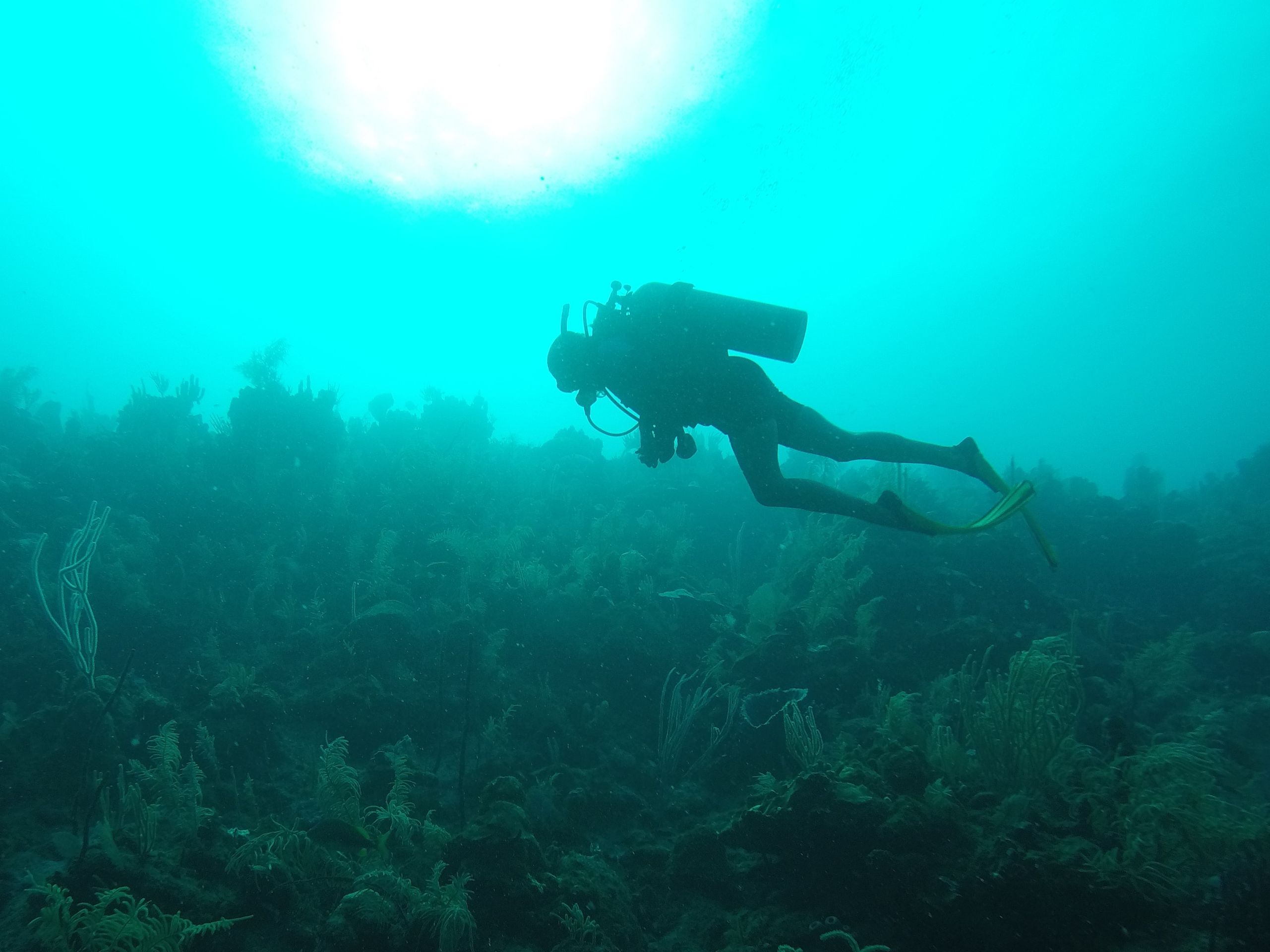
Dana received basic training as an Open Water Diver, allowing her to dive with a buddy. In addition to the theory, she had to complete five training dives up to 18 meters deep. The focus was on the function and handling of the equipment, appropriate behavior in different situations, communication underwater, and the joy of new impressions.
Julian, who was already certified as an Open Water Diver, signed up for the Advanced Open Water Diver course. This course includes theoretical and practical specialization in five areas: deep diving, navigation, wreck diving, perfect buoyancy, and night diving.
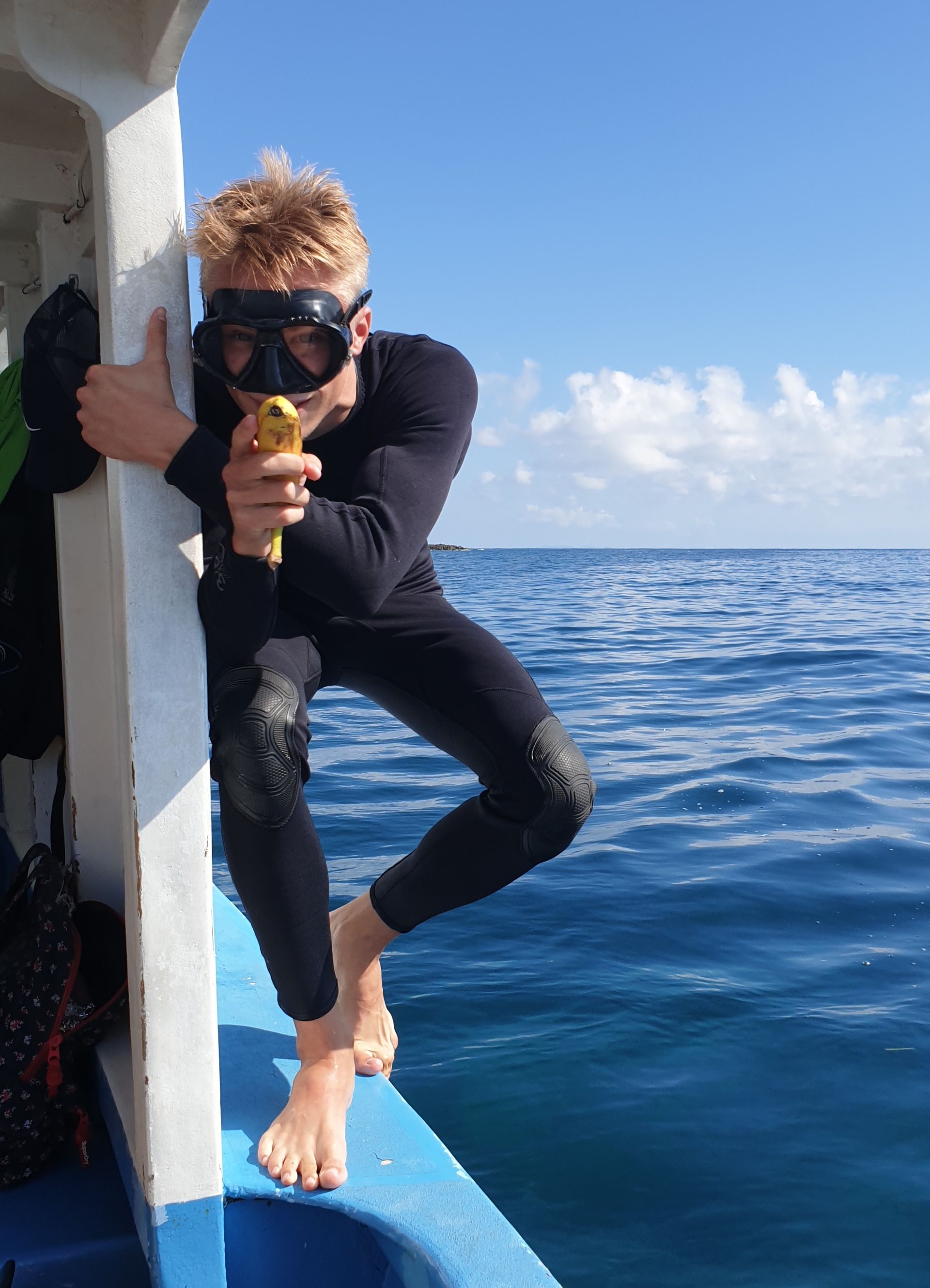
The deep dive took us 30 meters below the surface. At this depth, only a small amount of light reaches the seafloor, robbing it of its vibrant colors and creating a world of dark blue and shades of gray. Without important safety stops, it would take over two minutes to ascend from this depth.
In the sea bottom in front of Utila, also at a depth of almost 30 meters, lies the four-story shipwreck of the Halliburton, a high-rise underwater. But the story of the cargo ship is not tragic: like many dive wrecks in the world, it was prepared and deliberately sunk—a mighty sight! Due to poor visibility, the gigantic ship was never completely visible, which made the dive even more exciting. We spiraled around the wreck, swam through the belly and the small bridge, past the ship's steering wheel.

However, the most fascinating dive was the night dive. Dana stayed on the boat to watch the action. As the sun sank into the sea, we prepared our equipment. After a short briefing, we rolled backward into the sea, letting the air out of our jackets. The already dark water engulfed us within seconds.
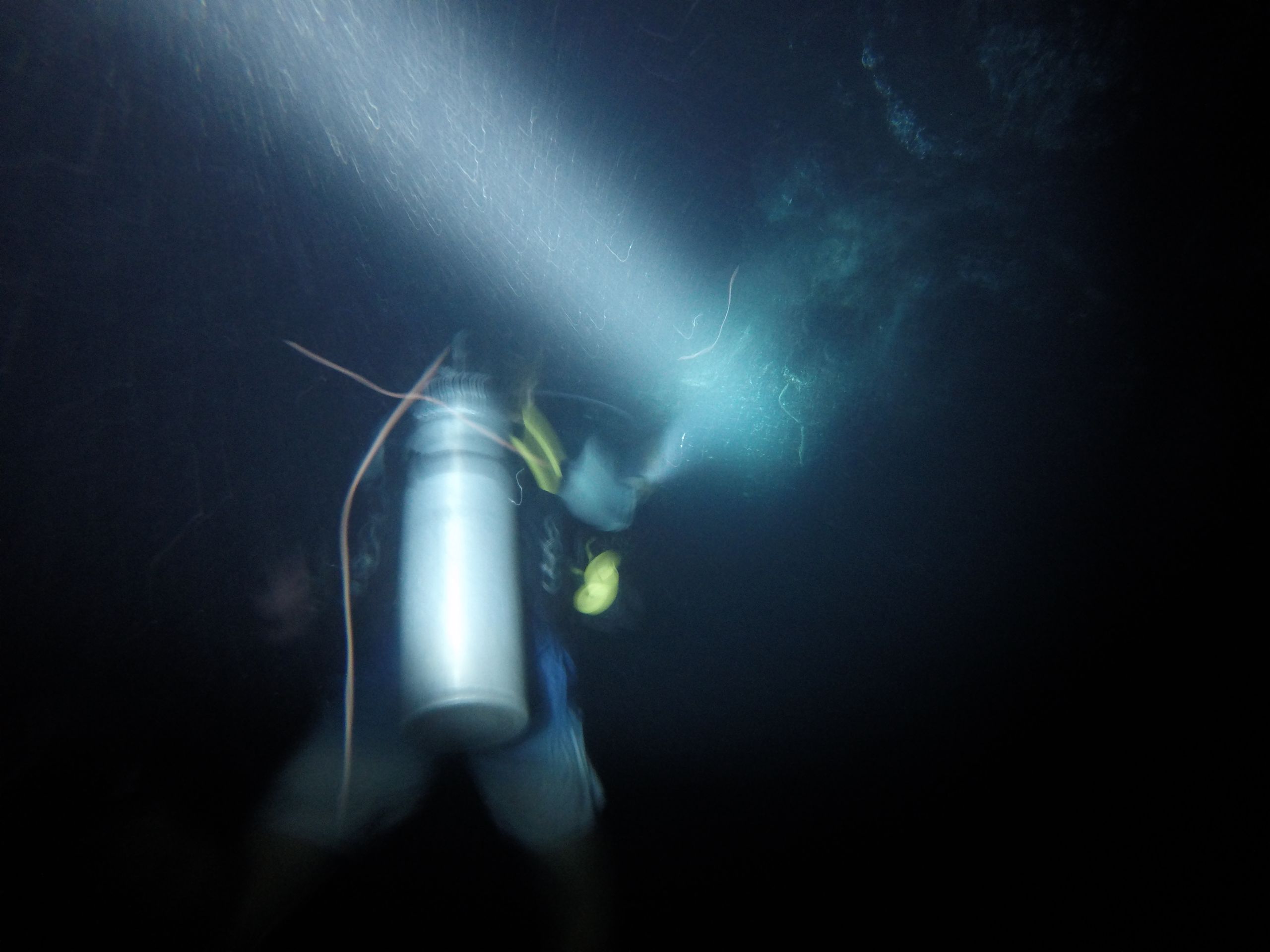
As we descend towards the Moon Holes, a round sand area surrounded by coral reefs, I can't help but think of the moon landing. We move weightlessly with delicate movements through the darkness. We don't know what surrounds us; only the beams of light from our flashlights slowly explore the darkness like curious fingers. You feel like you could bump into something at any moment. The senses are limited but sharp. The silence is only broken by the rushing air flowing through the regulator and the bubbles making their way to the water's surface.
Small fish dance in the flashlight beam, while a larger fish emerges from the darkness and goes after the illuminated prey. Other fish can be seen peacefully sleeping in their hiding places.
The eyes of the nocturnal crustaceans like shrimp, lobster, and crabs sparkle like tiny rubies in the flashlight beam, shining red. The seafloor seems to be lined with hundreds of these sparkling gems, somehow magical. Jellyfish float weightlessly in the darkness, with small flashes of light running through their bodies. We sit down carefully in the sand and turn off our flashlights. Our senses take a short moment to adapt to the total darkness, and it's time for an experiment: by moving our arms vigorously, we stimulate microscopic algae, causing them to glow in neon colors. Witnessing this unique, bioluminescence-produced underwater fireworks is only possible at night.
When we resurface after three-quarters of an hour, everything is quiet. The moon is shining, and the boat gently rocks in the waves. Dana comes to the side of the boat; she saw the beams of light from our flashlights shining from the depths. "And? How was it?" - "You have to experience it," is my first conclusion.
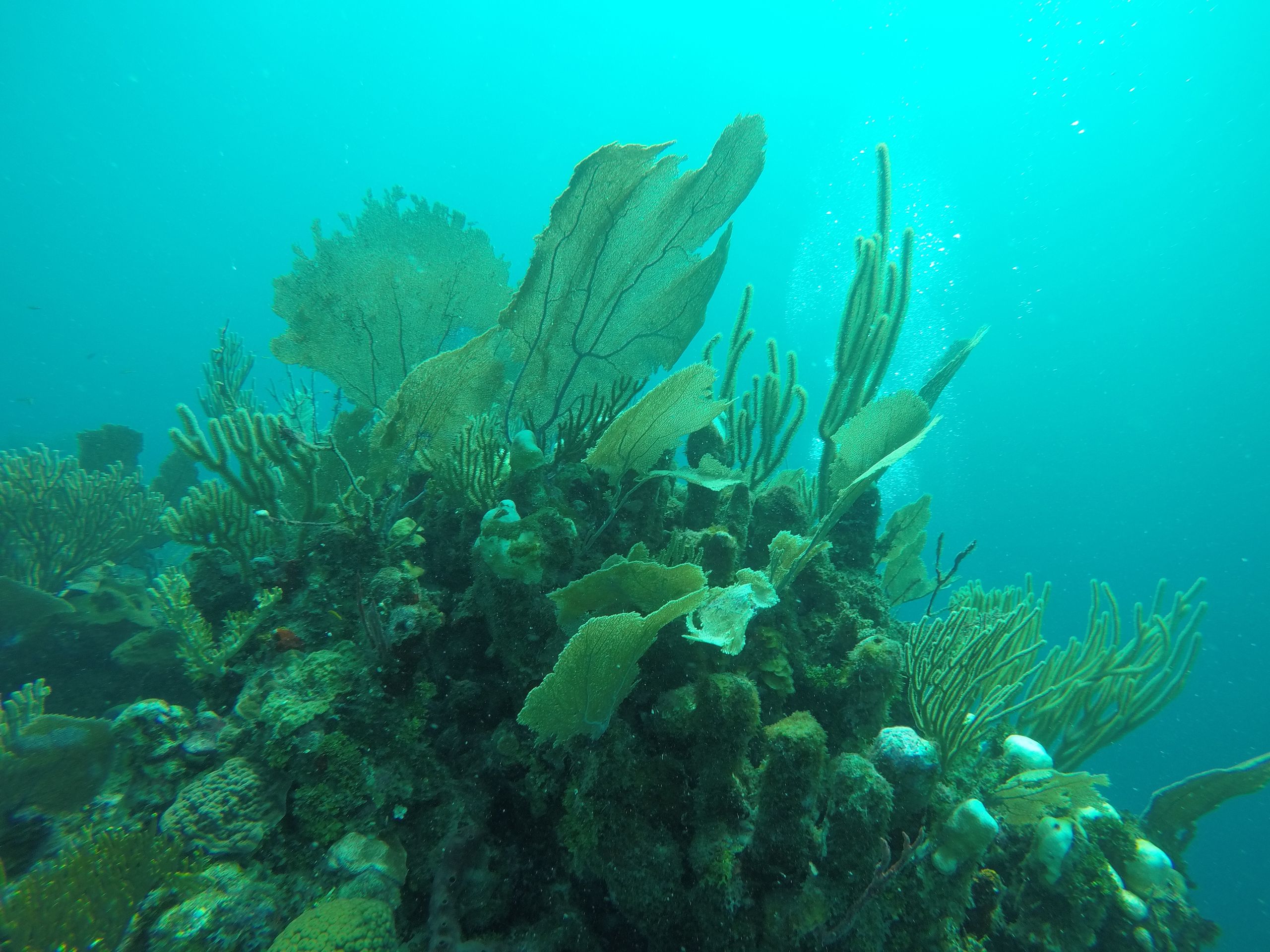

Although the seas make up two-thirds of the Earth's surface, the underwater world remains hidden from many people. Diving allows you to enter a fascinating world full of life and its own rules.
You embark on a safari where you may encounter large marine creatures with a bit of luck. However, you also quickly develop a fascination for small and tiny life forms like corals and their role in the ecosystem - there's so much to discover! Just when we thought we had seen everything on the same reef after three weeks, we encountered new species, colors, and shapes. It seems like you can escape gravity for the duration of the dive. You move weightlessly in all three dimensions, and suddenly, somersaults, spins, and hanging upside down become possible. It's almost as if you are flying.
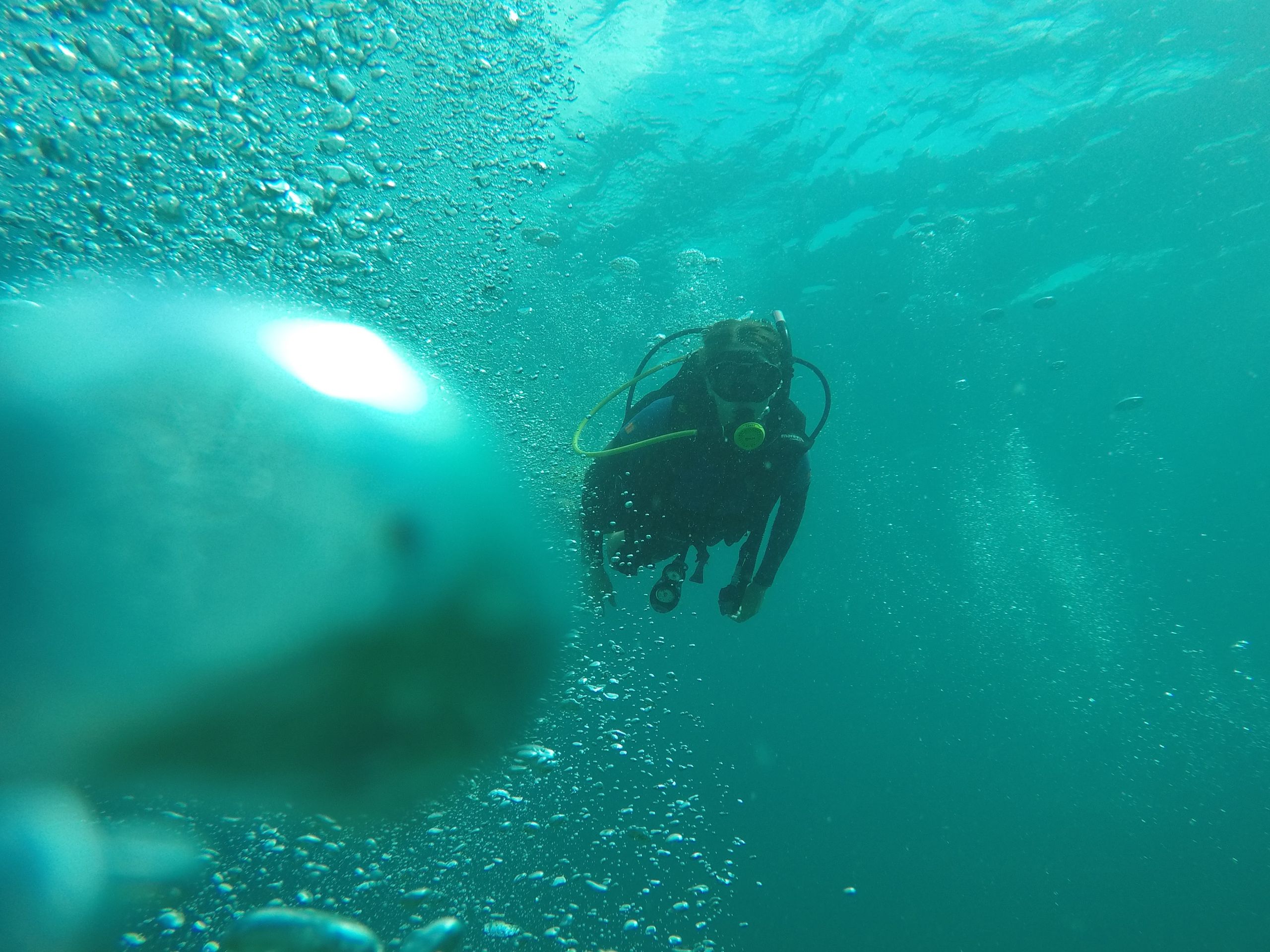
Despite all the fun, we were also reminded time and again that the ocean is not our natural habitat, and as humans, we are particularly vulnerable and will always be inferior if it comes to that. We have learned how important it is to be aware of our role as guests and to respect the natural limitations imposed by the ocean.
After experiencing all these adventures, we proudly received our diving licenses. From now on, we can dive together as dive buddies anywhere in the world. The next day, we set out to explore the depths of the sea side by side.
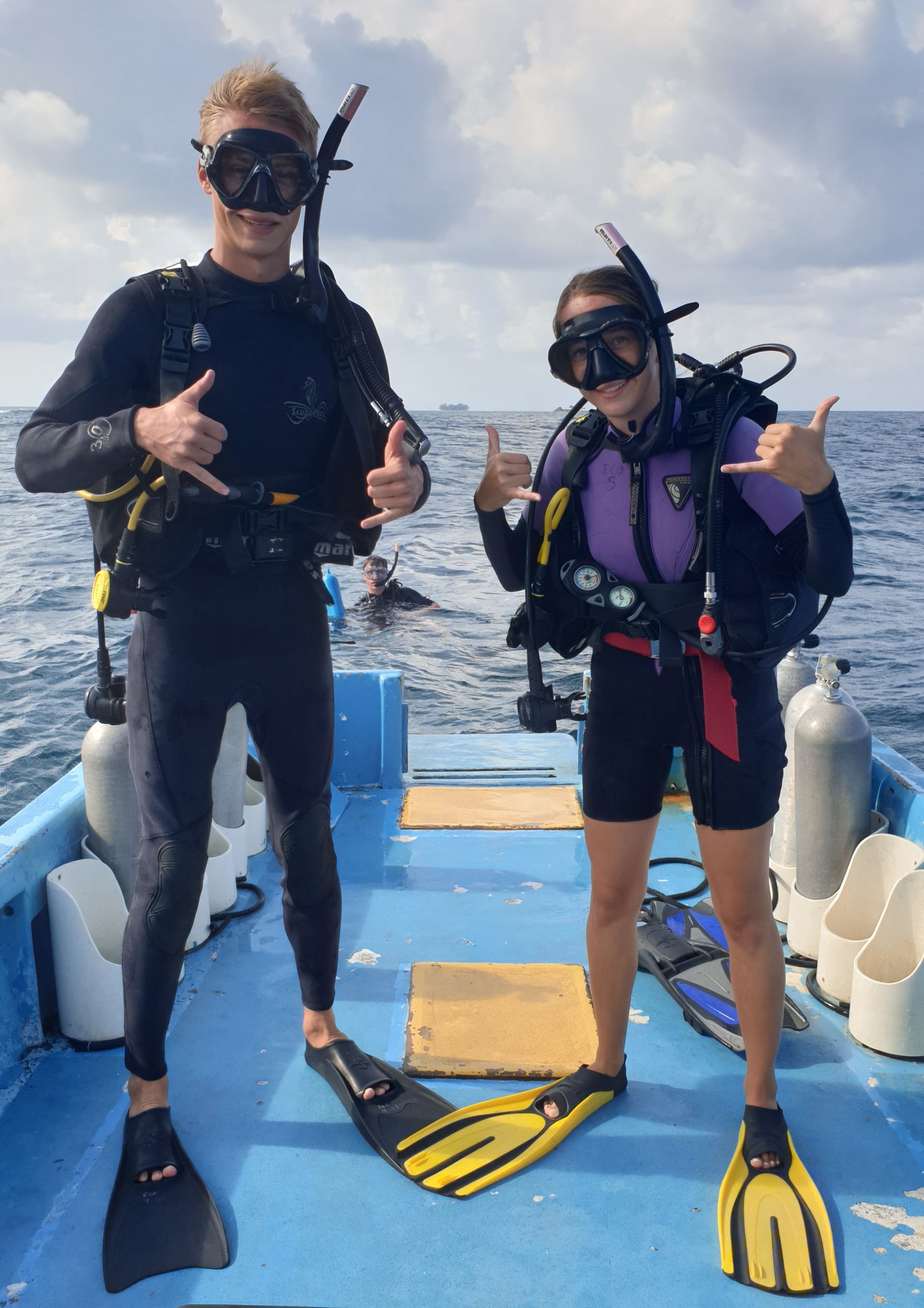
More Plastic - Plastic Sea
If fans lie on the seafloor, plastic bags float through the water like jellyfish, and flip-flops drift by the snorkel mask, you don't have to be a marine biologist... to finish this sentence.
The advancing coral bleaching and the increasing pollution of the oceans cause significant damage both above and below the sea surface and reveal how fragile this paradise-like habitat is.
Since it became known that plastic not only destroys landscapes and habitats but has also infiltrated our food chains, it must be considered a global threat. Although the information about this sad reality is nothing new, experiencing it firsthand is different.
Honduras is not an isolated case; we have encountered the waste problem throughout Central America. Convenience and an "out of sight, out of mind" mentality often lead to trash being carelessly thrown into the landscape or the ocean. The island residents themselves are responsible for much of the trash floating at the seafloor and around the islands. In heavily affected coastal areas, we could be selective while collecting trash because, despite large bags, we couldn't take everything with us.
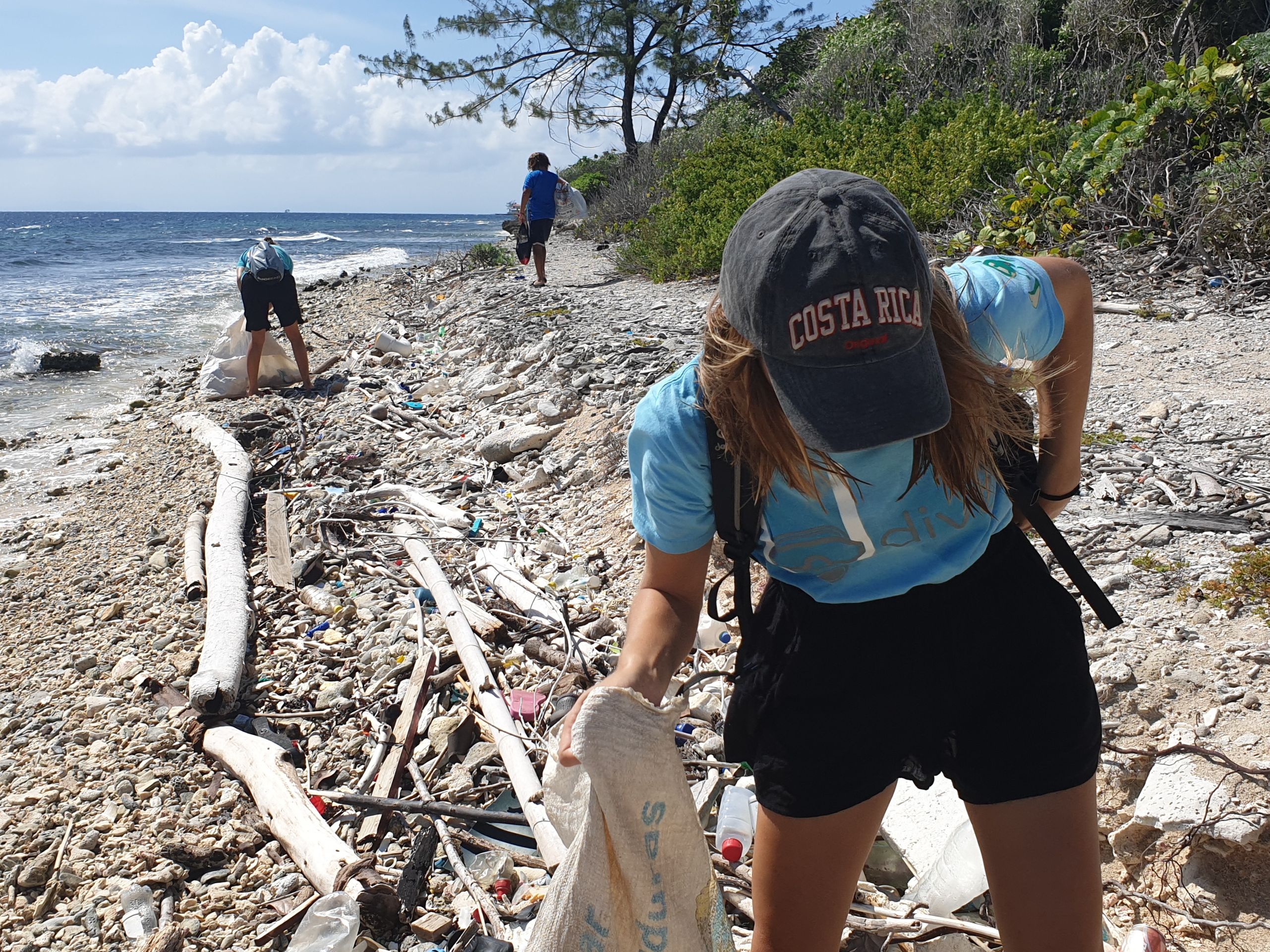
But there is hope; hope in the form of people like Anke, who are committed to protecting the oceans and the island residents' habitat. With the "environmental hero" project, the German woman is promoting a change in attitude. Children receive points for plastic bottles collected from the sea, which they can redeem for rewards. Every Saturday morning, the collected bottles are counted in the small island school and loaded onto a boat. Only after the work is done, do the teachers allow the highly coveted soccer ball to be played with. Similar projects to educate and raise awareness among the local population are also underway on Utila itself, with a particular focus on the younger generation growing up with a new awareness.
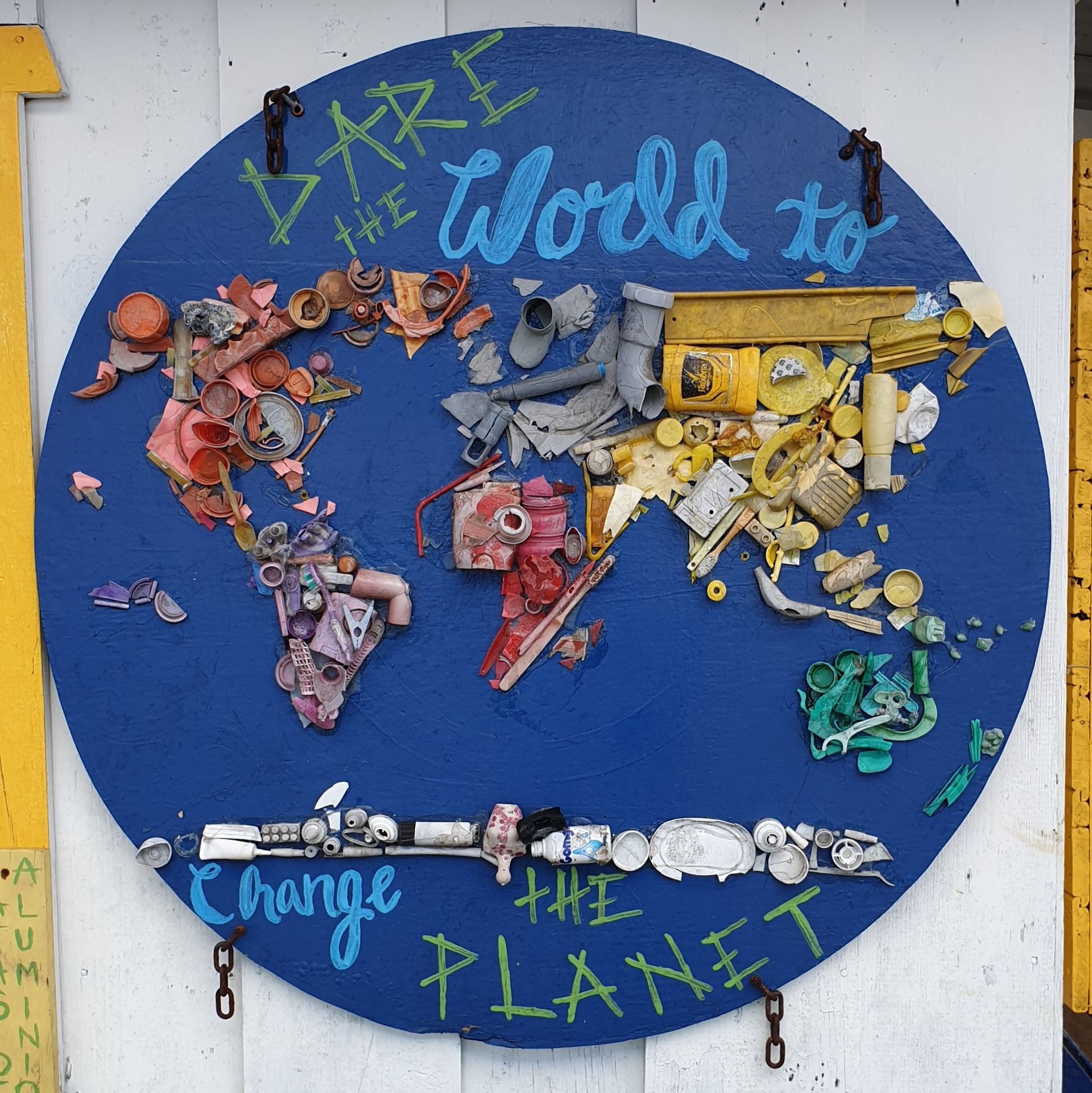
They are trying to find creative solutions for processing their own plastic waste. For example, the concrete used for the roads is mixed with recycled plastic. Thin packaging plastic is also cleaned and pressed into PET bottles until they become solid "plastic bricks," which are then used as building materials.
Naturally, these are only partial successes, and given that large amounts of waste enter the oceans every second, and new plastic is washed ashore with every wave, it is just a drop in the bucket. However, the island residents are successfully drawing attention to themselves, so even at the local political level, the ball has started rolling: since August 2019, the sale and purchase of styrofoam, straws, and plastic bags have been banned on Utila and the surrounding islands. This makes them one of the first regions in the world to implement such laws. Government officials from the mainland are also showing interest and viewing Utila as both a pilot project and a role model.
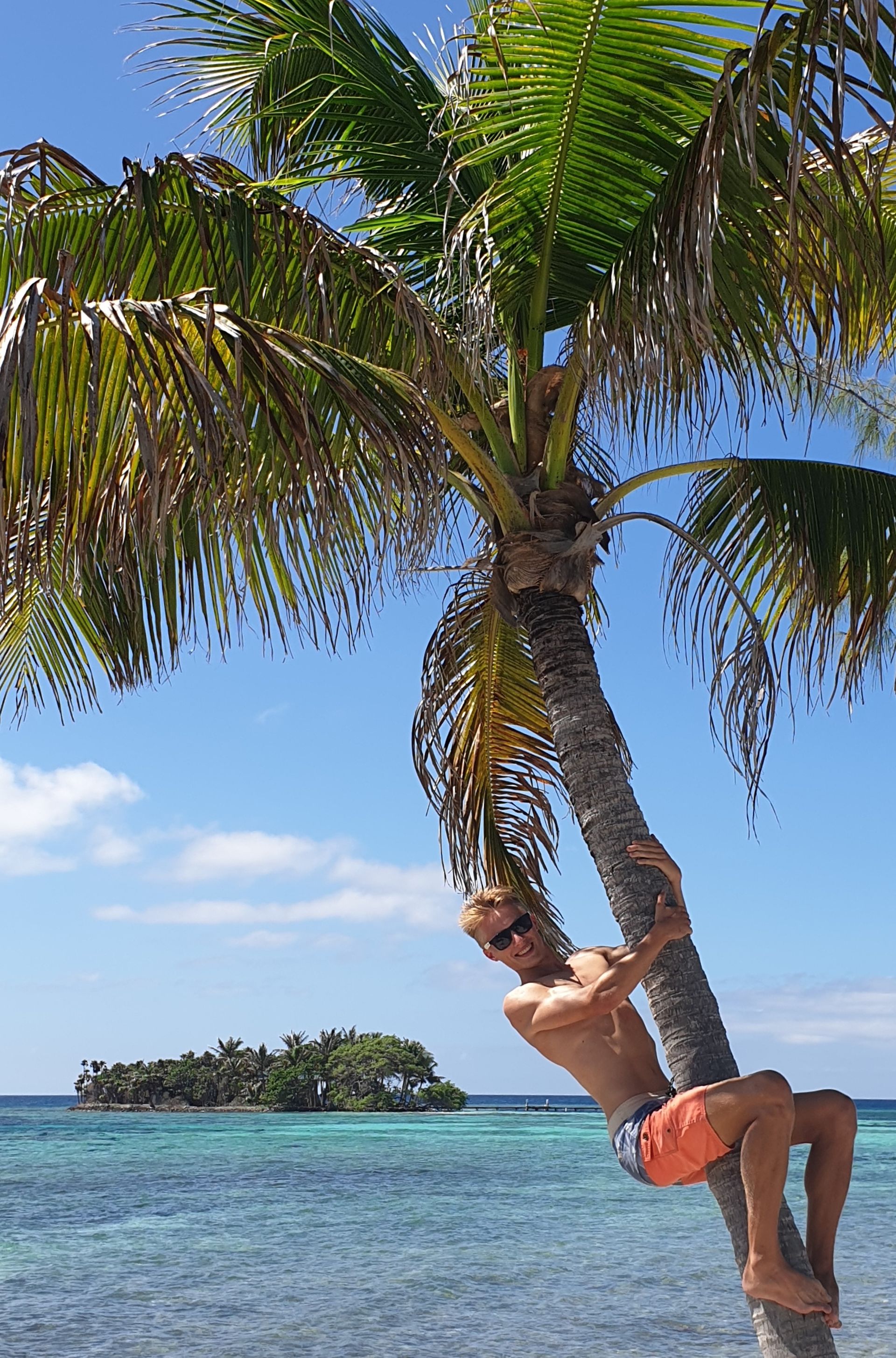
Coral Cleaning Specialist
To create some beautiful memories of our time together, Anke took the last day of our stay off. We were allowed to accompany her and Andres on a volunteer project that required scuba tanks and brought us back underwater: to counteract coral bleaching, a coral nursery was established on the seafloor in front of the resort where Anke works in Utila.
To ensure that these young coral pieces, attached to cords and metal grids, grow well, they need regular care.
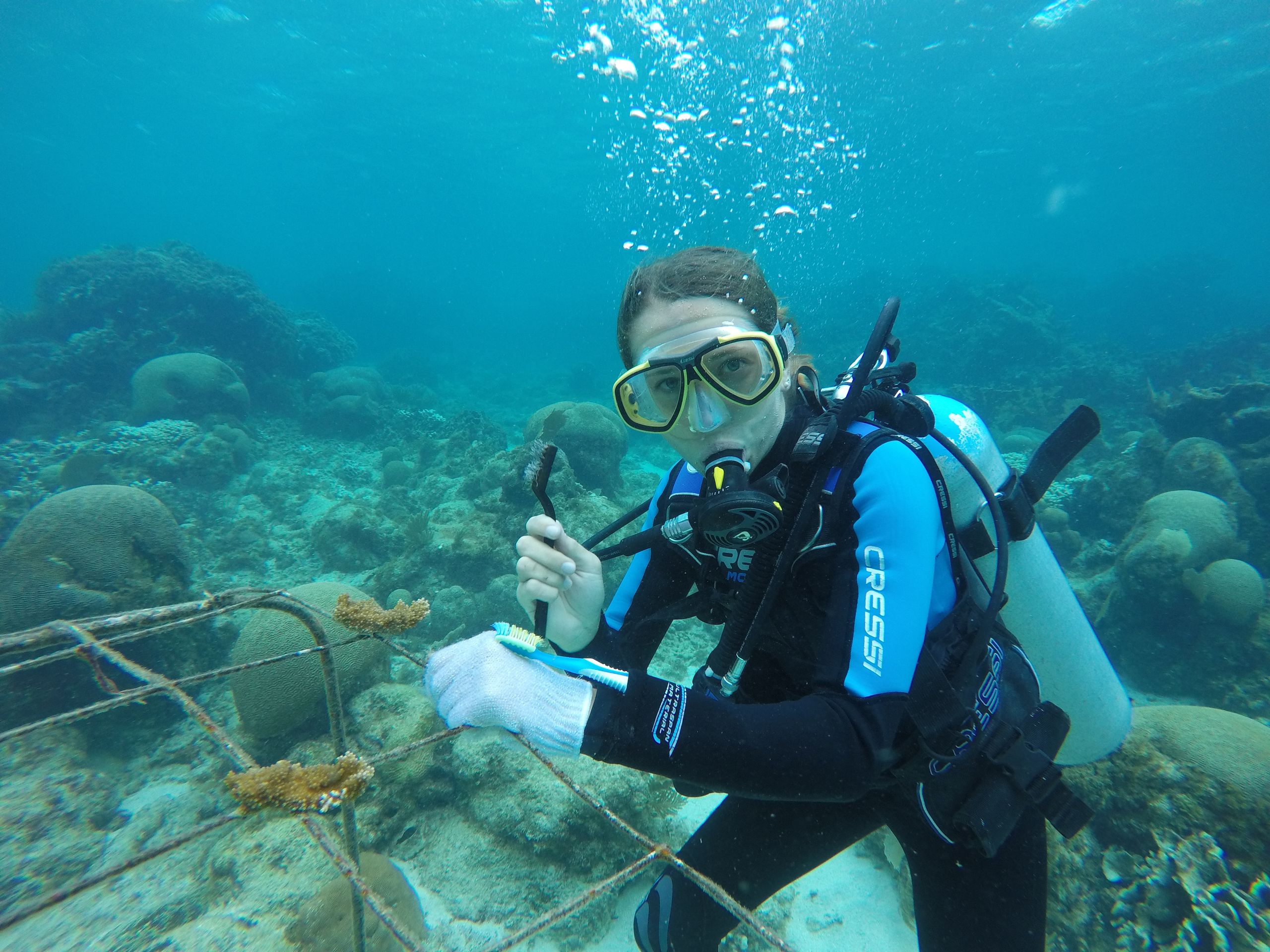
Equipped with wire brushes and toothbrushes, we dove to clean coral after coral from algae. A few years ago, I saw a report about a similar project in Jamaica, but I never dreamed of experiencing it myself.
After 40 minutes, all the corals were cleaned, and there was still plenty of air left in the tanks. Anke showed us the reef in more detail.
After resurfacing, we were allowed to spend a few more hours at the luxurious resort before taking a boat to Water Cay.
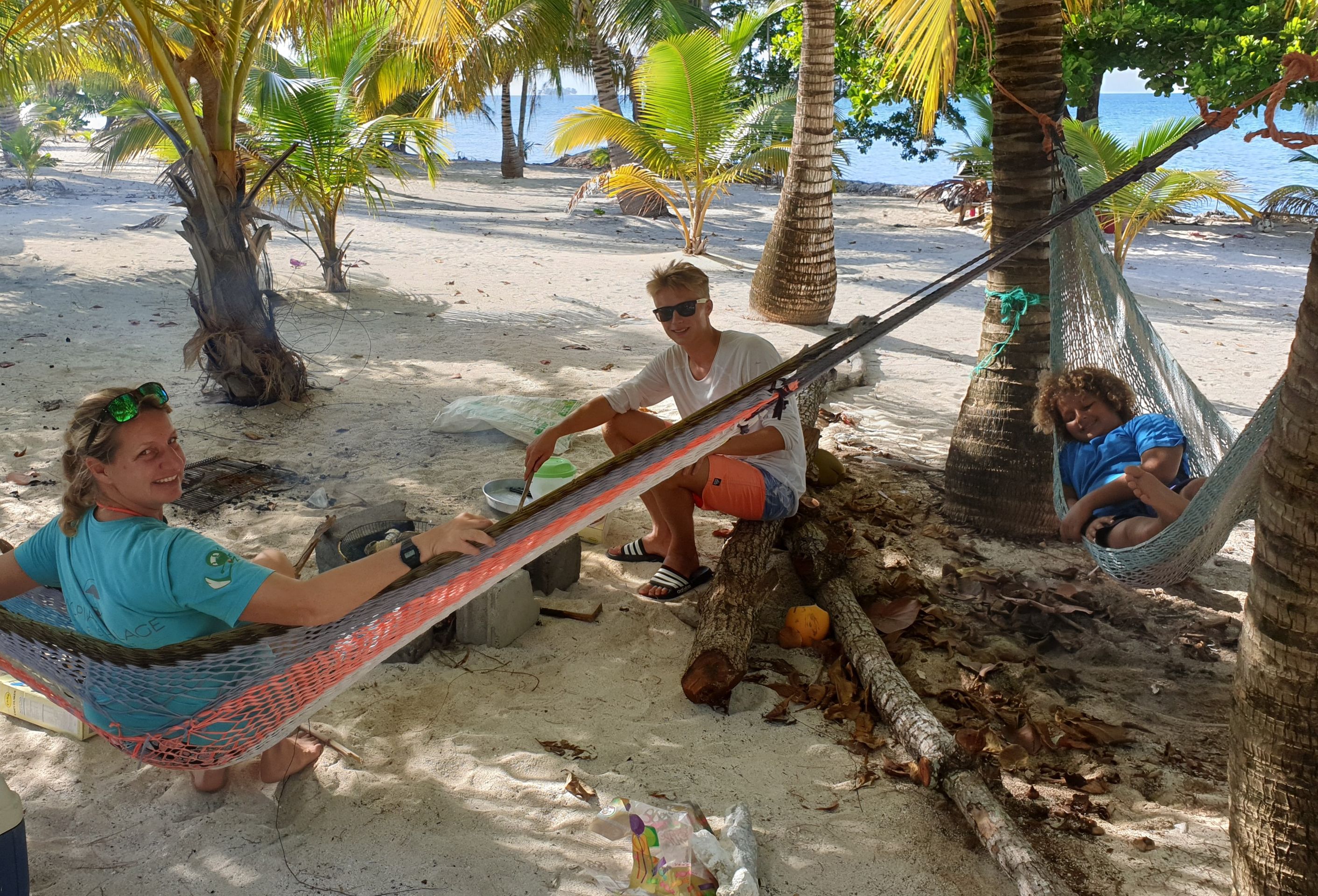
There, between the palm trees on the white sand, we lit a small fire to grill the freshly caught tuna. The hammocks sway back and forth, and the gentle breeze rustles the palm leaves. Someone realizes in astonishment that it is the first Sunday of Advent. We grab our snorkel masks and let ourselves float, even the dog Suki joins us in the water - this is how it is to live as a Rottweiler in the Caribbean.
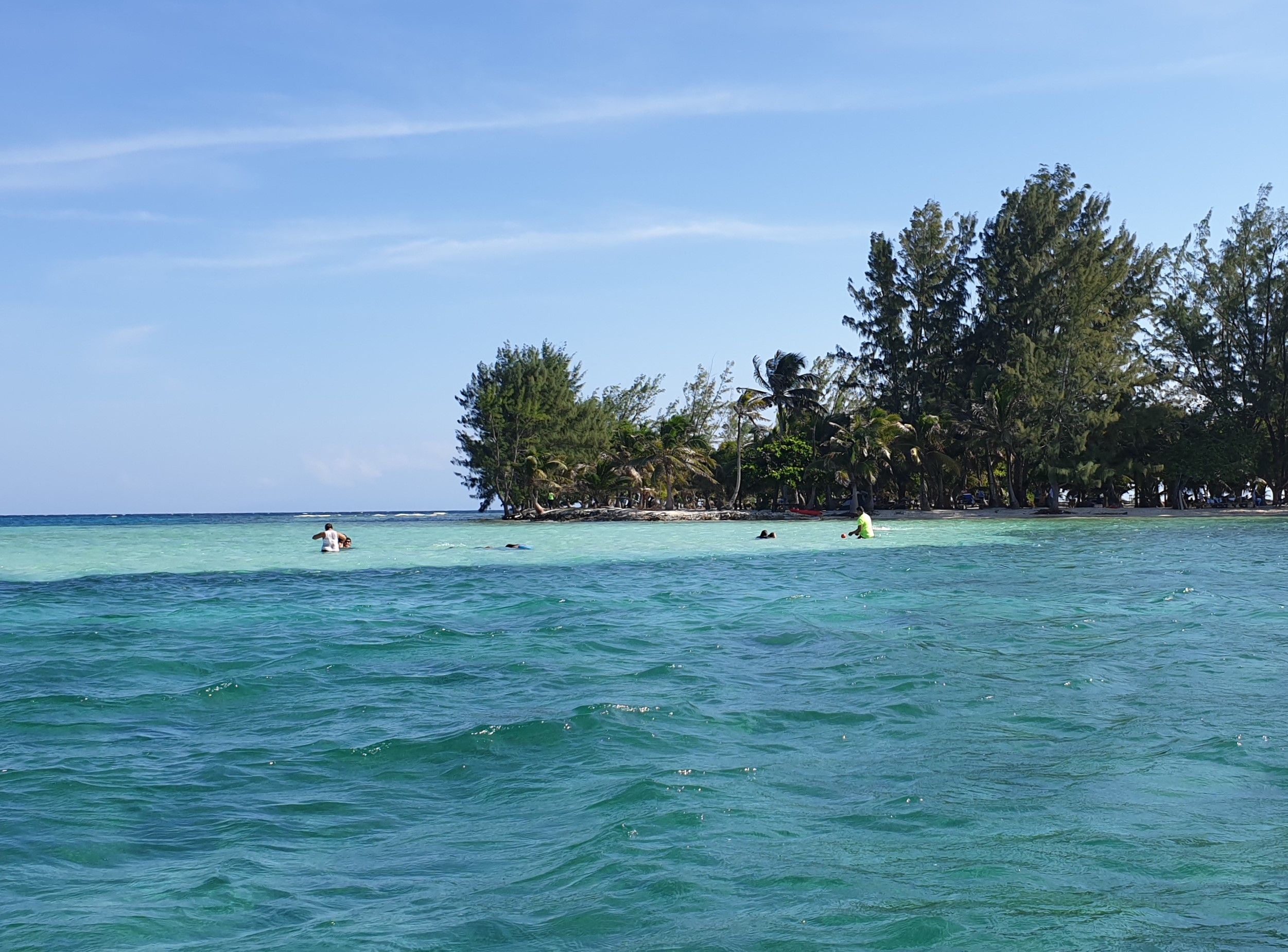

Before the last night on the Cays and saying goodbye to Andres and Anke, they take us night snorkeling after dark. Luminescent red sea snails, shrimps, squid, and a bright green moray eel - this night also presents a colorful theater in the light beams of our flashlights.

With heavy hearts, we pack our backpacks that night. Our time on the Utila Cays was unbelievable, there's no more ocean than this! Ultimately, all that's left to say is that the only bad thing about our time with Anke and Andres was that it came to an end after three weeks.
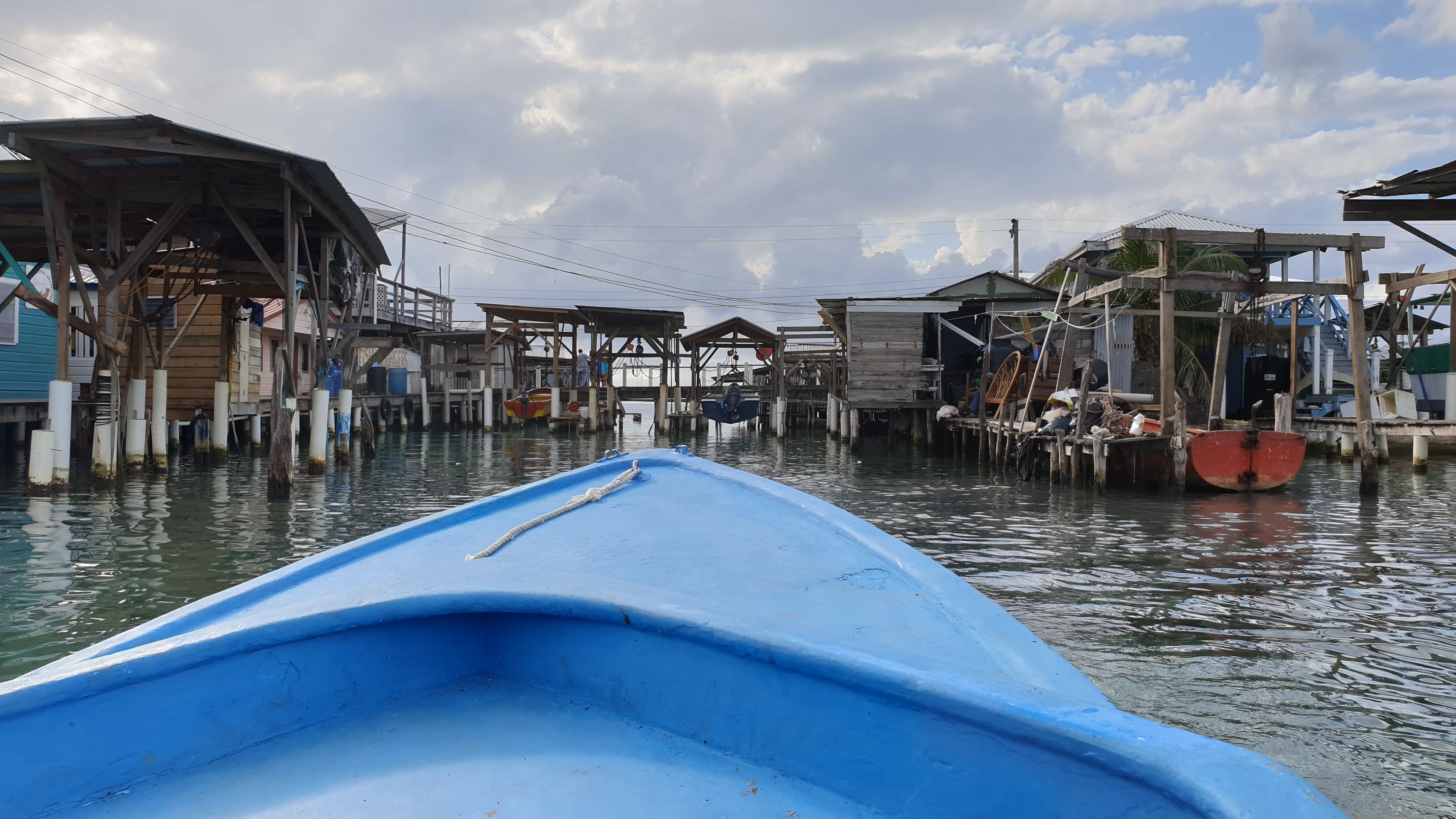
Back on the Road
The journey felt a bit like waking up from a three-week dream. The sky had been crying all day when our ferry reached the mainland in the last daylight. Do we still have all our valuables on us? How can we get from A to B safely and affordably? Where can we find something to eat? Where will we spend the night? - As we check into the dormitory of a run-down hostel in La Ceiba, the backpacker life catches up with us again.
Far from all the hustle and bustle, we enjoyed a carefree life with Anke and Andres, but now, back on the road, we had to be extremely vigilant and cautious again. You only realize how valuable the feeling of safety is when it's no longer there.
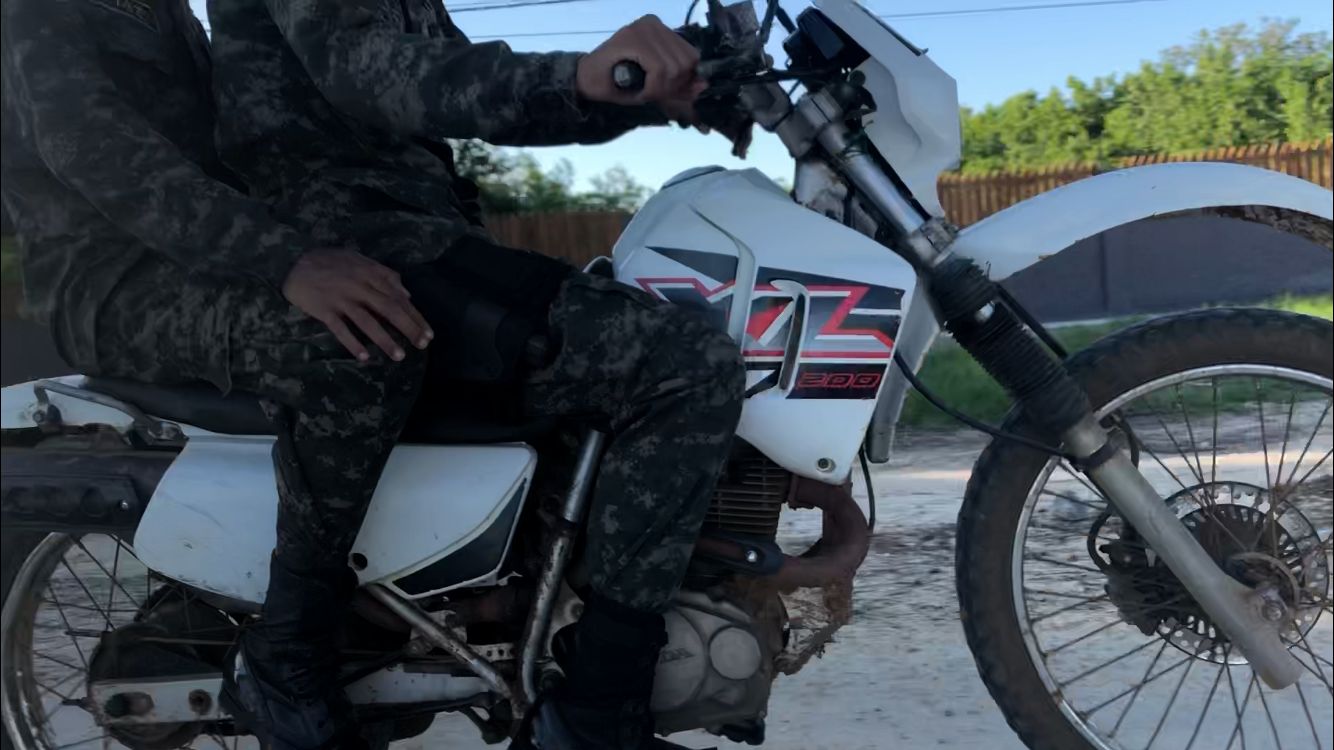
Getting from the Caribbean coast of Honduras to Nicaragua within one day using public transportation is considered an athletic feat even in the least crowded backpacker forums. However, to avoid ending up in one of the infamous cities such as San Pedro Sula or Tegucigalpa, we accepted a short night's rest and set off again at three o'clock in the morning. If everything went according to plan, we would spend the next night in Nicaragua.
See you on the other side of the border, until then!
Greetings
D&J
Abonner på nyhedsbrev
Svar
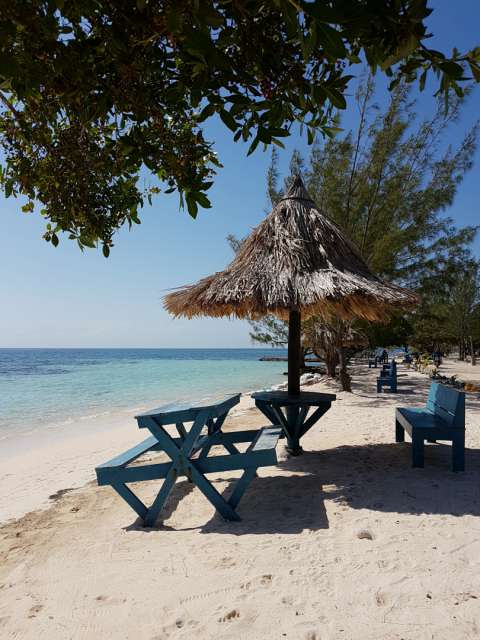
Rejserapporter Honduras
